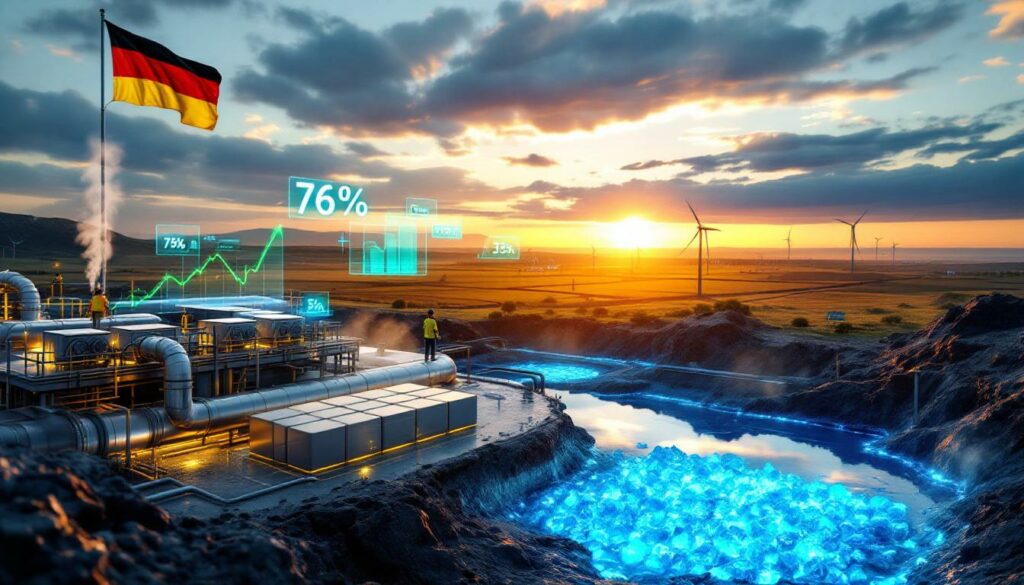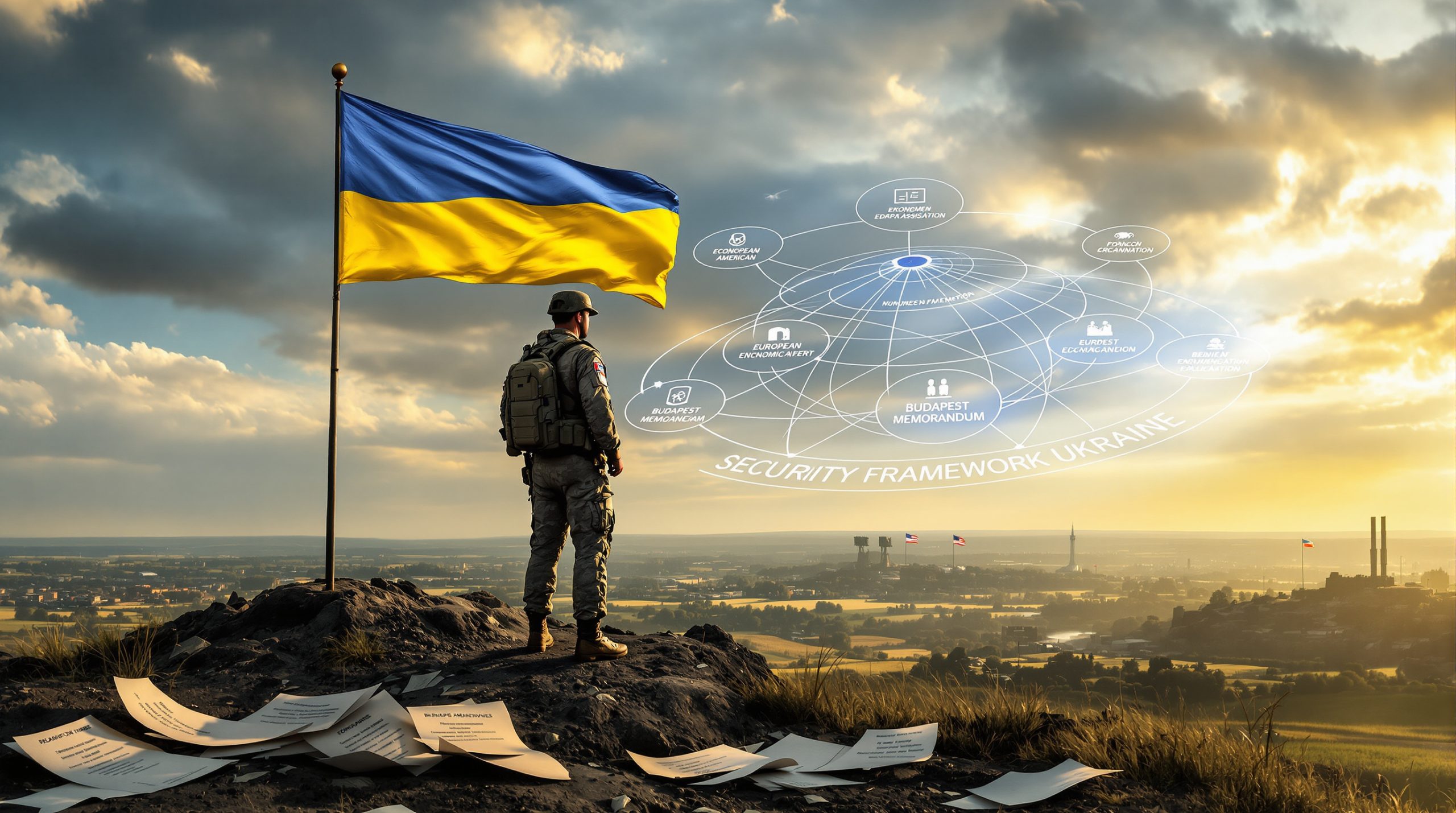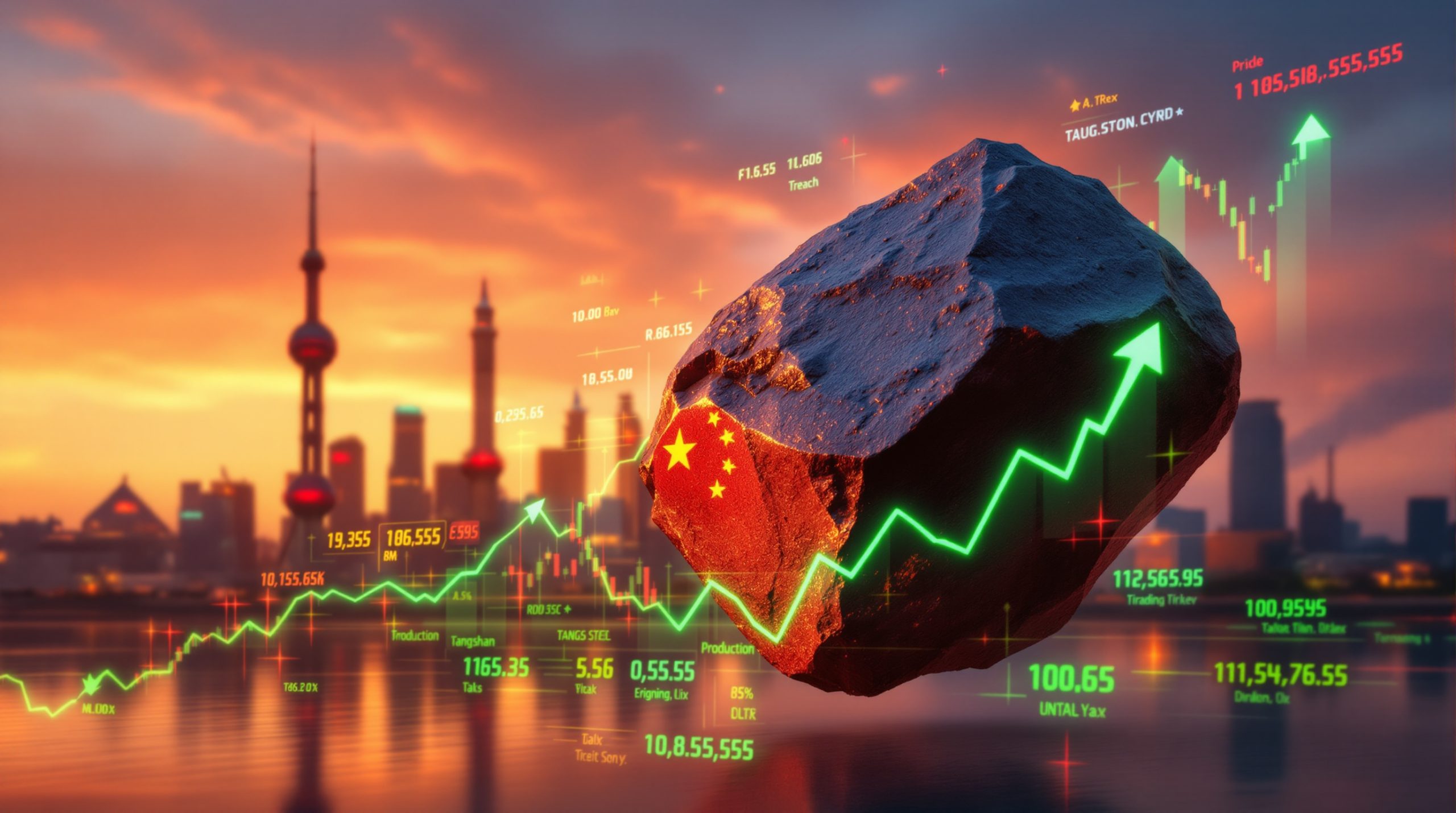The Rise of Vulcan Energy's Mannheim Project: 76% Lithium Resource Boost Strengthens European Battery Supply Chain
Europe's quest for energy transition security and sustainable battery material production has received a significant boost with Vulcan Energy Resources' latest announcement. The company has reported a remarkable 76% increase in lithium resources at its groundbreaking Mannheim project in Germany, strengthening Europe's position in the global battery materials market.
Pioneering Carbon-Neutral Lithium Production
Vulcan Energy's Mannheim project represents a revolutionary approach to lithium production, combining geothermal energy generation with lithium extraction from underground brine reserves. This dual-purpose technology aims to create a truly carbon-neutral lithium production cycle – a world-first innovation that directly addresses the carbon footprint concerns plaguing conventional lithium production methods.
Located in Germany's Upper Rhine Valley Brine Field (URVBF), the project sits strategically within Europe's industrial heartland. This positioning provides significant logistical advantages, with proximity to major automotive manufacturing hubs reducing transportation emissions and costs while strengthening Europe's domestic battery supply chain resilience.
CEO Cris Moreno describes the venture as a "world-first carbon-neutral, integrated lithium and renewable energy business to decarbonise battery production," highlighting the project's importance in Europe's clean energy transition.
Resource Expansion: Understanding the 76% Increase
Recent 3D seismic survey results have enabled Vulcan Energy to announce a substantial expansion of its lithium resource estimate at the Mannheim project. The resource has grown from 1,833 kilotonnes of lithium carbonate equivalent (LCE) to an impressive 3,225 kilotonnes LCE – representing a 76% increase while maintaining consistent quality parameters.
This dramatic resource expansion maintains high-quality metrics, with the magnesium-lithium ratio increasing only marginally from 153 to 155. This minimal change in the Mg/Li ratio indicates that the processing complexity remains relatively unchanged despite the significantly larger resource base.
The following table illustrates the magnitude of this resource update:
| Resource Metric | Previous Estimate | Updated Estimate | Change |
|---|---|---|---|
| Total LCE (kilotonnes) | 1,833 | 3,225 | +76% |
| Mg/Li Ratio | 153 | 155 | +1.3% |
According to Moreno, this substantial update represents "yet another step forward in advancing our pipeline of integrated lithium and renewable energy project development in the URVBF beyond our phase-one development."
Dual-Resource Innovation: Lithium and Geothermal Energy
What truly sets the Mannheim project apart is its groundbreaking dual-resource approach. Alongside the lithium resource update, Vulcan Energy has completed its maiden geothermal energy resource estimate for the license area – a first for the company and a rarity in the mining decarbonisation benefits landscape.
This assessment revealed a massive in-place geothermal resource of 2,848 petajoules (PJ) in the indicated category and 10,539 PJ in the inferred category. Of this total, the company estimates 171 PJ (indicated) and 377 PJ (inferred) as recoverable energy resources, creating a substantial renewable energy opportunity alongside lithium production.
The dual-resource approach creates powerful operational synergies:
- Cost Efficiency: Shared drilling and infrastructure costs between lithium extraction and geothermal energy production significantly reduce capital expenditure requirements
- Carbon Neutrality: Using geothermal energy to power the lithium extraction process eliminates the need for fossil fuels in processing
- Revenue Diversification: Multiple income streams from both lithium sales and renewable energy provision improve project economics
- Circular Economy: Waste heat from power generation can be utilized in lithium processing, maximizing energy efficiency
- Community Benefits: District heating supply to local communities creates additional social value while producing battery materials
Vulcan's development plan includes delivering baseload geothermal heat from the Mannheim resource to the district heating network operated by MVV Energie AG, a leading German energy company. This partnership demonstrates the commercial viability of the heat production aspect while creating a stable revenue stream alongside lithium production.
Strategic Development Pathway
The resource update represents a crucial milestone in Vulcan's broader development strategy. As Moreno noted, this update "further validates our strategy to replicate the current phase into future phases" across the Upper Rhine Valley Brine Field, which spans both Germany and France.
This approach of phased development allows Vulcan to:
- Establish technical viability with initial operations
- Generate cashflow from early phases to support expansion
- Apply operational learnings to optimize subsequent developments
- Scale production to meet growing European lithium demand
- Expand geothermal energy production in parallel with lithium capacity
The company is currently progressing a scoping study for the Mannheim project, which will provide preliminary economic assessments and development timelines incorporating the updated resource figures.
European Energy and Resource Security Implications
The strategic importance of the Mannheim project extends far beyond its commercial value to Vulcan Energy shareholders. As Moreno emphasized, the URVBF represents "the largest lithium resource in Europe" and serves as "a significant asset for Europe's energy and critical raw materials security."
This domestic lithium source reduces dependency on imports from regions with potentially higher geopolitical risks or environmental impacts, supporting Europe's strategic autonomy in battery materials.
The geothermal component contributes to European energy security by providing:
- Baseload Renewable Energy: Unlike intermittent renewables like solar and wind, geothermal provides consistent power generation
- Local Heat Supply: District heating reduces natural gas consumption, decreasing import dependency
- Grid Stability: Reliable power generation that complements other renewable sources
- Energy Diversification: Adds another resource to Europe's renewable portfolio
As Europe continues its transition to electric mobility and renewable energy, projects like Mannheim represent critical infrastructure for maintaining industrial competitiveness while meeting climate objectives.
Global Context: A New Paradigm for Lithium Production
While Vulcan Energy boosts lithium resource in Mannheim project, it also represents an innovative third pathway in the lithium production landscape compared to traditional methods.
Traditional lithium production methods include evaporative brine operations in South America's "Lithium Triangle" and hard rock mining in Australia. Vulcan's approach differs fundamentally by focusing on geothermal brines with direct lithium extraction (DLE) technology powered by the same geothermal energy.
This methodology potentially addresses several sustainability concerns associated with conventional lithium production:
- Water Usage: Unlike South American operations that evaporate massive amounts of water in desert regions
- Carbon Footprint: Conventional lithium production can generate significant CO₂ emissions per tonne of lithium
- Land Disturbance: Minimal surface footprint compared to hard rock mining operations
- Processing Chemicals: Potential for reduced chemical usage compared to conventional extraction methods
The company's zero-carbon lithium project demonstrates how innovative green design in mining can transform traditional extraction processes.
Implementation Challenges and Path Forward
While the resource update represents a significant milestone, the path to commercial production involves numerous challenges not explicitly detailed in the available information.
Typical hurdles for projects of this nature include:
- Technical Optimization: Refining the direct lithium extraction process for specific brine chemistry
- Scaling Production: Moving from pilot to commercial scale while maintaining performance metrics
- Permitting Processes: Securing all necessary approvals for both geothermal and lithium operations
- Community Engagement: Maintaining social license to operate through transparent engagement
Vulcan is addressing these challenges through its methodical development approach, beginning with the ongoing scoping study that will inform subsequent development decisions.
Investment Considerations
For investors watching this development, Vulcan Energy's resource upgrade strengthens its position as a potential cornerstone of Europe's battery supply chain. The company's unique dual-resource approach offers exposure to both the energy transition and electric vehicle growth markets.
Key investment considerations include:
- Strategic Position: First-mover advantage in European domestic lithium production
- ESG Credentials: Carbon-neutral production methodology may command premium pricing
- Dual Revenue Streams: Income diversification through both lithium and energy production
- European Policy Support: Alignment with EU Critical Raw Materials Act and decarbonization goals
According to the Phase One Lionheart project, Vulcan's approach positions the company for strong growth in Europe's emerging lithium market.
Next Development Phases
According to available information, Vulcan Energy is currently progressing a scoping study for the Mannheim project. This study will incorporate the updated resource figures and geothermal estimates to create a comprehensive project evaluation.
Key upcoming milestones likely include:
- Completion of the scoping study with economic projections
- Advancement of permitting applications
- Expansion of strategic partnerships with end-users and energy consumers
- Detailed engineering and design work for commercial facilities
Understanding Vulcan's Lithium and Geothermal Resources: Key Questions
How does direct lithium extraction differ from conventional methods?
Direct lithium extraction (DLE) technologies selectively remove lithium from brine using specialized adsorbents or ion exchange materials, rather than evaporating water in large ponds. While specific DLE technology details aren't provided in the available information, this approach typically reduces water consumption, land use, and processing time.
What is the significance of the magnesium-lithium ratio?
The magnesium-lithium ratio (Mg/Li) of 155 in Vulcan's resource is an important quality indicator. Higher ratios typically indicate more challenging processing requirements, as magnesium can interfere with lithium extraction. The minimal change in this ratio (from 153 to 155) despite the large resource increase suggests consistent brine chemistry throughout the expanded resource.
How does geothermal energy production work alongside lithium extraction?
Based on the available information, Vulcan's integrated approach involves extracting hot brine from deep underground reservoirs. The heat is first harvested for electricity generation or direct heating applications (such as the MVV Energie AG district heating network). Before returning the brine to the reservoir, lithium is selectively removed using DLE technology, creating a circular system that maximizes resource value.
What is the estimated timeline for commercial production?
While specific timelines aren't detailed in the available information, Vulcan Energy is currently conducting a scoping study that will establish preliminary development timelines. The phased development approach suggests a methodical scaling of production over time rather than a single large development.
As Vulcan Energy continues to develop its battery-grade lithium refinery capacity, it positions itself for potential green metals leadership in the European market.
Disclaimer: This article is based on publicly available information and company announcements. Investors should conduct their own research and due diligence before making investment decisions. Resource estimates and project timelines are subject to change as development progresses.
Ready to Stay Ahead of the Next Major Battery Mineral Discovery?
Discover how significant mineral resource updates like Vulcan Energy's 76% lithium boost can create substantial market opportunities with Discovery Alert's proprietary Discovery IQ model, delivering real-time notifications on promising ASX announcements. Visit Discovery Alert's discoveries page to understand the historical returns from major mineral discoveries and begin your 30-day free trial today.




